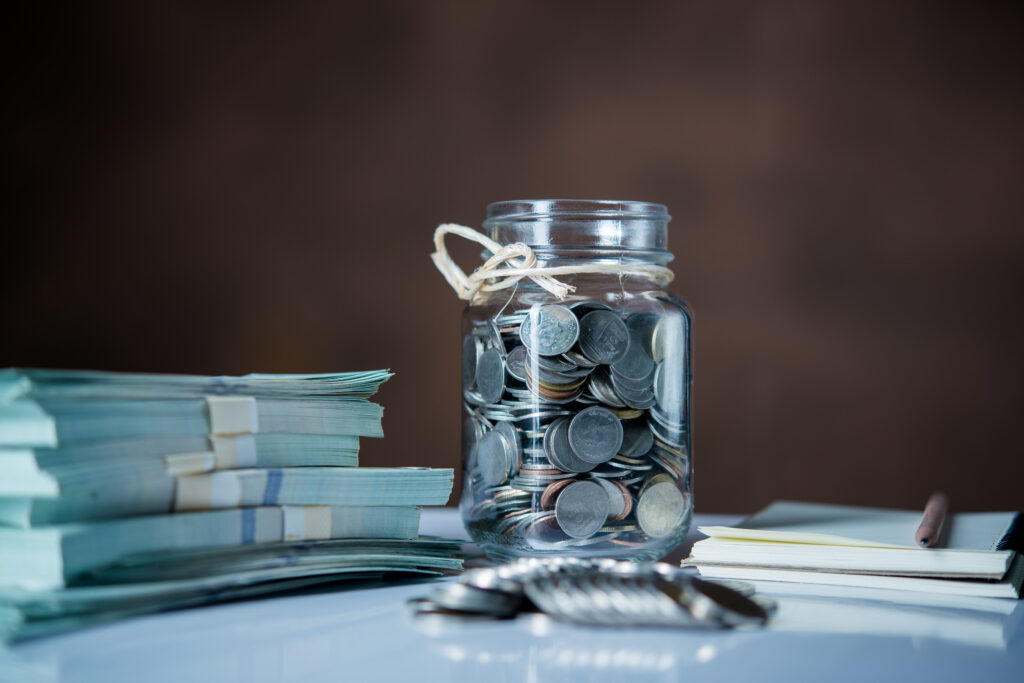What is a deposit? A guide to managing money and boosting business finance
Deposits play a vital role in how we manage money daily, serving as a foundation for both personal and business finances. At its core, a deposit is money entrusted to a bank, financial institution, or entity, either for safekeeping or as part of an agreement. Whether you’re adding funds to a savings account, providing a security deposit for an apartment, or prepaying for a future expense, deposits are central to financial planning.
Understanding the types of deposits can enhance your ability to make informed decisions. For instance, demand deposits, like checking accounts, provide easy access to funds for daily needs, while time deposits, such as fixed deposits, lock in your money for a set period in exchange for higher interest rates. On the other hand, security deposits act as a guarantee in transactions, ensuring commitments are met.
Mastering the nuances of deposits can help you achieve both short- and long-term financial goals. For individuals, it’s about growing savings and meeting responsibilities. For businesses, it ensures smoother operations, providing liquidity or securing agreements. Knowing how and where to allocate your deposits can make a significant difference in financial stability and growth.

What is a deposit?
A deposit is money placed into a bank or financial institution for safekeeping, investment, or as part of a transaction. It’s a fundamental financial activity, whether you’re securing funds, earning interest, or fulfilling an agreement. By depositing money, you trust the institution to safeguard it until you need it or to grow it through interest accumulation.
Deposits serve various purposes, from managing personal finances to meeting business obligations. For instance, depositing funds into a savings account helps protect your money while potentially earning interest. Similarly, security deposits act as guarantees in agreements, such as renting an apartment. Whether for personal or business use, understanding the role of deposits is key to effective financial management.
Where deposits are used
Deposits serve diverse purposes across different scenarios. In banking, they’re primarily used to safely store money in savings or checking accounts. These deposits not only keep funds secure but may also earn interest, helping individuals grow their wealth over time.
In other contexts, deposits act as financial guarantees. For example, when renting a property, a security deposit is often required to cover potential damages or unpaid rent. This ensures landlords have a safeguard in case of unexpected expenses.
Businesses also rely on deposits to secure transactions. Whether it’s placing a deposit to reserve goods or services or using it as an advance payment, deposits act as a financial promise, building trust between parties. These versatile functions highlight the importance of deposits in managing personal and business finances effectively.
How deposits work
When you deposit money into your bank account, it doesn’t just sit idle. Banks use your funds to support their lending and investment activities, helping the economy function smoothly. For example, they might lend your deposited money to individuals or businesses in need of loans, such as for buying a home or expanding operations.
Despite being utilized in these ways, your deposit remains safe and accessible whenever you need it. This system benefits both parties: you earn interest on your savings, growing your wealth over time, while the bank uses your funds to generate revenue by offering loans and other financial services. It’s a mutually beneficial arrangement that forms the foundation of modern banking.

The different types of deposits
Fixed deposits
Fixed deposits, or FDs, are a straightforward way to save money. You put a lump sum into a bank account and agree to leave it there for a set period. This could be a few months or several years, depending on what works best for you.
The best part about fixed deposits? You know exactly what you’ll get at the end. The interest rate is locked in, so there are no surprises.
Typically, FDs offer better interest rates than regular savings accounts because you’re committing your money for that fixed period.When the time is up, you get back what you put in, plus the interest. It’s a safe bet if you’re looking to earn a little extra without any risks.
Savings deposits
Savings deposits are like your everyday piggy bank but in a bank account. You put money in, it earns a bit of interest, and you can take it out whenever you need it. Simple, right?
These accounts are super flexible, which is why they’re great for your daily money needs. Whether you’re saving for something small, like a new gadget, or just keeping some cash on hand for emergencies, a savings account makes sure your money is always there when you need it. The interest might not be a lot, but the convenience more than makes up for it.
Demand deposits
Demand deposits are the funds held in your checking account, designed for everyday use. They provide the ultimate convenience, allowing you to access your money instantly for expenses like paying bills, withdrawing cash, or making purchases. Whether you’re swiping your card at the store or transferring funds online, demand deposits ensure your money is always available when you need it.
The key advantage of demand deposits is flexibility—you can withdraw or use your funds without facing delays or penalties. However, this accessibility comes at a cost. Unlike savings accounts or other investment options, demand deposits typically earn little to no interest. While they may not help grow your wealth, their role in managing daily financial needs makes them indispensable for many people.
Recurring deposits
Recurring deposits, or RDs, are a great way to save if you prefer putting away a little bit of money regularly instead of all at once. Think of it like setting aside a portion of your paycheck every month.
With an RD, you agree to deposit a fixed amount every month for a set period. Each deposit earns interest, and at the end of the term, you get back your money with some extra on top. It’s a good way to build up savings slowly but steadily, especially if you have a regular income and want to save without too much hassle.
Term deposits
Term deposits are a lot like fixed deposits. You put your money away for a set period, and in return, you get a guaranteed interest rate. The difference is that term deposits can cover a wider range of time frames, from short-term to long-term.
Term deposits are perfect if you’re thinking ahead and planning for the future. Maybe you’re saving for something big like a down payment on a house or a long vacation. With term deposits, you get the peace of mind that your money is safe, and you know exactly what you’ll earn by the end. It’s a solid option if you’re looking for a low-risk way to grow your savings.
Time deposits
Time deposits are another form of term deposits, but they usually come with a higher interest rate because you agree to keep your money in the bank for a specific amount of time.
The big draw here is the better interest rate. But the catch? You can’t touch your money until the agreed time is up, unless you’re okay with paying a penalty. Time deposits are great if you know you won’t need the money for a while and want to get the most out of your savings.
How deposits are used in banking

Deposits are the fuel that keeps the banking system running. When you put money into your bank account, the bank doesn’t just let it sit there. They use it to help others—like people who need to buy a house or businesses looking to grow. Your deposit helps the bank provide these loans, keeping the economy moving.
Funding loans and investments
Banks don’t merely store the money you deposit; they actively put it to work. A portion of your funds is loaned out to individuals and businesses or invested in various projects, like real estate or government bonds. This system allows banks to generate income by charging interest on loans and earning returns on investments.
Interestingly, the interest banks charge borrowers is typically higher than the interest they pay you on your deposit. This difference, known as the net interest margin, is a major source of revenue for banks. It ensures they can cover operational costs, provide services, and earn a profit.
While your money is secure and accessible when needed, it also plays a role in fueling the broader economy. By facilitating loans and investments, banks help fund new businesses, personal ventures, and community projects, creating a cycle of growth that benefits everyone.
Deposit insurance protection
One big reason people trust banks with their money is deposit insurance. In many places, there’s a system that protects your money up to a certain amount, even if the bank has problems. So, if the bank fails, you’re not out of luck—you’ll still get your money back. This makes deposits a pretty safe bet for keeping your money secure.
Interest on deposits
When you put money into your account, the bank pays you interest as a thank you for letting them use your money. How much you earn depends on the type of deposit you have and the rate the bank offers.
Factors affecting interest rates on deposits
How the economy is doing
When the economy is booming, interest rates tend to go up. But if things are slowing down, banks might lower rates to encourage borrowing and spending.
Inflation
If prices are going up (which is what inflation is), banks usually increase interest rates. They do this to make sure the money they lend out doesn’t lose too much value over time.
Decisions by central banks
Central banks, like the Federal Reserve, play a big role in setting the tone for interest rates. When they adjust their rates, regular banks often follow their lead, raising or lowering the rates they offer to you.
Borrowers and lenders
If a lot of people are looking to borrow money, banks might raise interest rates to keep things in check. But if fewer people need loans, banks might lower rates to attract more customers.
Competition between banks
Banks are always trying to outdo each other to get more customers. If one bank offers a higher interest rate, others might do the same so they don’t lose business, which can make rates go up or down.
Simple vs. compound interest
There are two main ways to earn interest: simple and compound. Simple interest is calculated on the original amount you put in, so it’s straightforward. Compound interest, however, is calculated on both your original deposit and the interest that’s already been added. Over time, compound interest can help your savings grow faster, which is why people often prefer it.
Deposits in real estate: Understanding security deposits

When you rent a home or apartment, you usually have to pay a security deposit. This is money you give to the landlord as a kind of insurance. If you take care of the place and follow the lease, you’ll get the deposit back when you move out. But if there’s any damage or unpaid rent, the landlord can use the deposit to cover those costs.
Why security deposits are important
Security deposits give landlords peace of mind. They know that if something goes wrong—like damage to the property or skipped rent—they have some money set aside to fix things. For tenants, it’s a good reason to take care of the place so they can get their money back.
Other types of deposits in real estate
Besides security deposits, there are other deposits in real estate. For example, when you’re serious about buying a property, you might pay earnest money. This shows the seller that you’re committed to the purchase. If everything goes as planned, this money is usually applied to the purchase price.
How deposits are used in business
In business, deposits are often used to seal the deal. If you book a service or place a large order, the business might ask for a deposit upfront. This shows you’re serious about going through with the transaction.
Handling customer deposits
Businesses typically hold onto these deposits until the service is done or the goods are delivered. After that, the deposit might be applied to the final payment or returned to the customer, depending on the agreement.
Securing contracts and services
Deposits play a big role in making sure both sides stick to their end of the deal. They act as a commitment from both parties—the business agrees to provide the service or goods, and the customer shows they’re ready to pay. This helps prevent cancellations and makes sure everyone is on the same page.
Advantages of deposits
Keeps your money safe
One of the best things about deposits is that they keep your money safe. When you put money in a bank, especially in insured accounts, you don’t have to worry about losing it, even if the bank has problems. It’s a secure way to store your money.
You earn a little extra
Deposits let you earn interest, which is like a small reward for keeping your money in the bank. While it might not be a lot, it’s a steady way to grow your savings without taking big risks. Over time, this can help you build a nice little nest egg.
Disadvantages of deposits
Your money might be stuck
One downside of some deposits, like fixed deposits, is that your money can be locked up for a while. During that time, you might not be able to access it without paying a penalty, which isn’t great if you suddenly need cash.
You might not earn as much
Deposits are safe, but they usually don’t earn as much as other investments like stocks or real estate. If you’re looking to grow your money quickly, the lower returns on deposits might not be enough to meet your goals, which can be a bit of a letdown.
Summing up
Deposits are a key part of how money moves around in both personal and business finance. By understanding how deposits work, you can make smarter financial decisions and use them to your advantage. Whether you’re saving, investing, or securing a deal, deposits play an important role in keeping your finances on track.
FAQs
Can I withdraw money from a fixed deposit before it matures?
Yes, you can withdraw money from a fixed deposit before it matures, but you might have to pay a penalty. This penalty usually reduces the interest you would have earned.
How do banks decide the interest rate on deposits?
Banks set interest rates based on several factors, including the central bank’s rates, the economy’s condition, and how much competition there is among banks. They aim to balance attracting customers and making a profit.
What happens to my deposit if a bank goes bankrupt?
If a bank goes bankrupt, deposit insurance usually kicks in to protect your money up to a certain limit. This means you’ll still get your money back, even if the bank is in trouble.
Is it better to keep money in a savings account or a fixed deposit?
It depends on your needs. A savings account is more flexible, letting you access your money anytime, but a fixed deposit usually offers higher interest rates if you can lock in your money for a while.
Can businesses earn interest on their deposits like individuals do?
Yes, businesses can earn interest on their deposits, just like individuals. However, the interest rates and terms might vary depending on the type of account and the bank’s policies.


